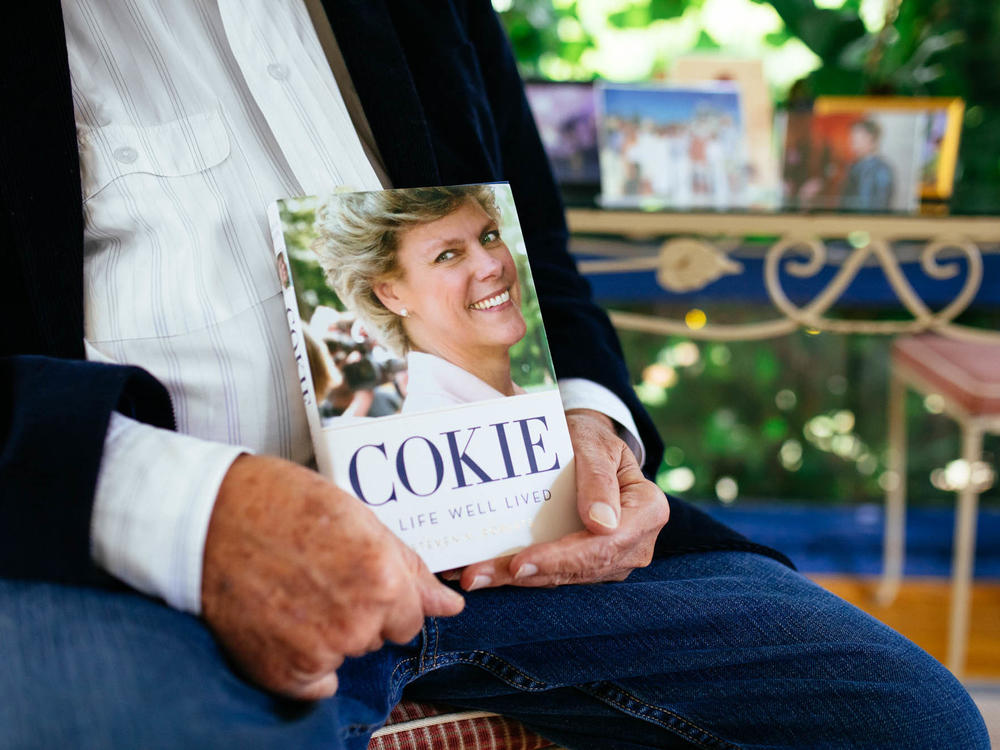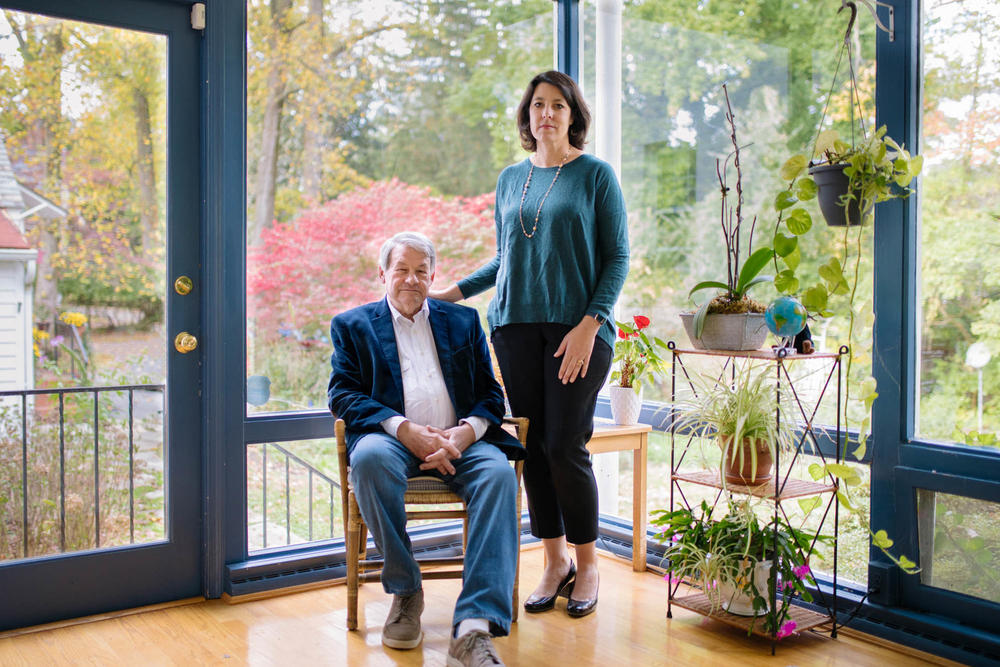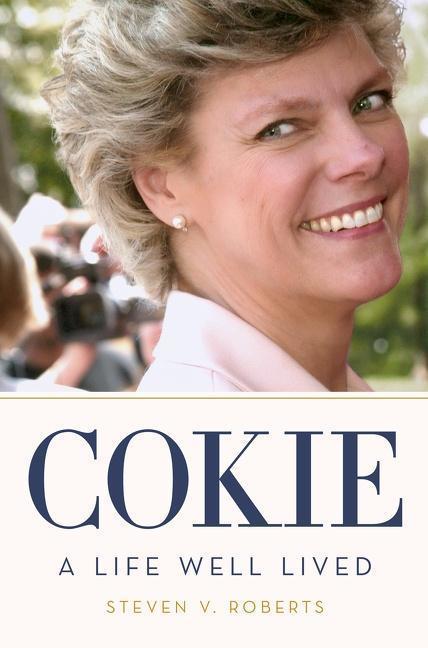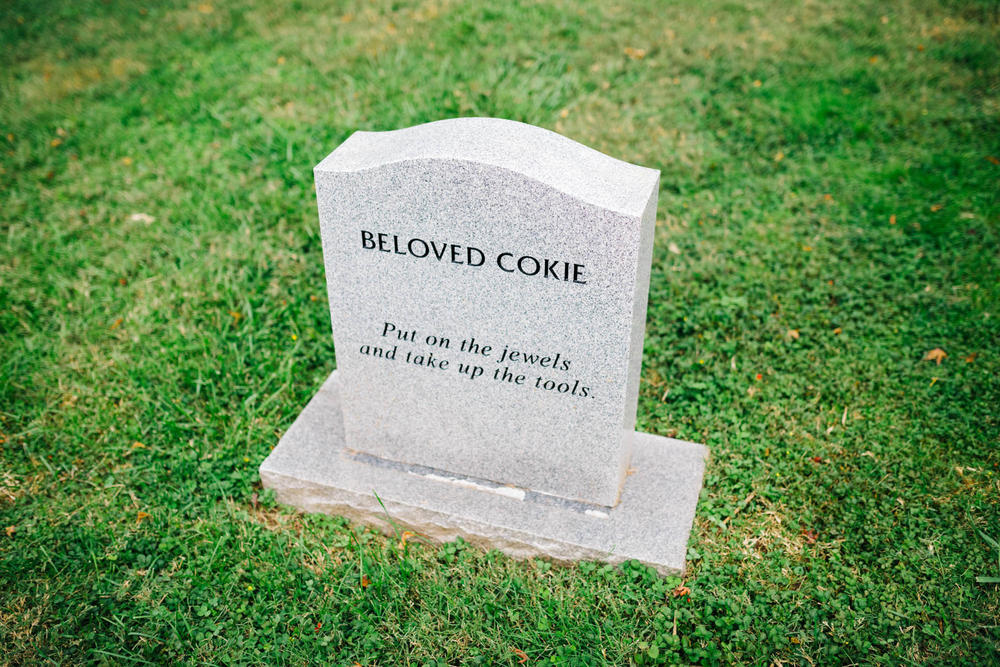Section Branding
Header Content
A new book captures Cokie Roberts and her 'Life Well Lived'
Primary Content
If you stroll the grounds of Congressional Cemetery in Washington, D.C., you'll find the graves of some historic figures like J. Edgar Hoover, the first FBI director, and legendary composer, John Philip Sousa. It's also where Cokie Roberts, the trailblazing longtime NPR journalist, is buried. Her plot is near her brother's, Thomas "Tommy" Hale Boggs Jr., who died in 2014, and the cenotaph to her father, former House Majority leader Hale Boggs. Hale Boggs' plane disappeared over Alaska in 1972 and his body was never found.
The cemetery is rich with both American history and Cokie Roberts' own. And it's sacred ground for those she left behind.
Her husband, Steven Roberts, and their daughter, Rebecca Roberts, have plots picked out there for themselves one day. And it's a place that Rebecca is deeply familiar with, having co-authored a book about it in 2012.
A week before Cokie Roberts' death of complications from breast cancer in 2019, she and her husband celebrated their 53rd wedding anniversary. At her funeral, he told funny and personal stories about their life together to some thousand mourners. There were still more stories to tell, he thought, so he dove into writing about them and her legacy.
That process, he tells NPR's Steve Inskeep, has been therapeutic.
"This is the way I grieve," he says. "This is the way I mourn. This is the way I embraced her memory."
On a recent early fall morning, he placed a stone from his garden — from the house that the couple shared in Bethesda, Md. — on her gravestone, a Jewish tradition of showing respect. Rebecca Roberts, standing beside him, holds a newly arrived hardcopy of his book, Cokie Roberts smiling on the cover. The process of writing that book, he says, has helped him feel like he gets to spend more time with his wife.
"Everybody goes through mourning and grief their own way," he says. "What I chose was to embrace it. What I chose was to remember. What I chose was to learn. What I chose was to celebrate. And as I say, I still live in the house we shared for 42 years. Still sleep in the same bed. Still eat in the same kitchen and this is what I chose and I'm very glad I did, because I learned so much. But also it kept me going."
What he learned has been poured into his book, Cokie: A Life Well Lived. It includes heartfelt conversations Roberts had with dozens of her friends, colleagues and mentors — exchanges that would almost inevitably end in tears, he says: "theirs and mine." He interviewed Lesley Stahl of 60 Minutes and Democratic party official Donna Brazile — as well as those who were less famous. They spoke of how Roberts broke several barriers for women, first as an NPR reporter in Congress, then at ABC, as one of the first women in television news.
He remembers the impact she had on their daughter's classmates
Her headstone reads with her full name: Mary Martha Corinne Morrison Claiborne "Cokie" Boggs Roberts. She later started going by the nickname given to her by her brother, Tommy, who couldn't pronounce Corinne. Cokie, she also realized, was much easier to say on air.
Steven and Cokie Roberts wrote a couple of books together, including about their interfaith marriage. In his new book, he describes how her faith grounded her — she was a devout Catholic — and he says that being a mother was her top priority, even as her journalism career took off.
For Rebecca Roberts, her mother led by example, always encouraging her and other women to succeed.
"It's not even so much about being more like Cokie because she was so generous, but being the person she was pretty confident you were. She would say, 'You are all brilliant and beautiful and good, and so be that person,' " she says.
Once, Steven Roberts says, his wife made a special trip to Rebecca's 6th grade class to talk about being an NPR radio reporter. Then, a few days later, she showed up to the school's Halloween parade.
"And as Cokie tells the story, Becca says, 'Why are you here? You don't need to be here,' " Steven Roberts recalls. "And Cokie says, 'It's your last year doing this. I'm going to be here.' And then she looks around, and there are all these 6th grade girls in blue suits carrying tape recorders. They dressed up as Cokie for Halloween."
Copyright 2021 NPR. To see more, visit https://www.npr.org.




